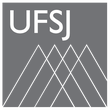PPMEC
PROGRAMA DE PÓS-GRADUAÇÃO EM ENGENHARIA MECÂNICA
PRÓ-REITORIA DE PESQUISA E PÓS-GRADUAÇÃO
Telefone/Ramal: Não informado
E-mail: Não informado
http://www.ufsj.edu.br//ppmec
Notícia cadastrada em:
SIGAA | NTInf - Núcleo de Tecnologia da Informação - +55(32)3379-5824 | Copyright © 2006-2025 - UFSJ - sigaa05.ufsj.edu.br.sigaa05




